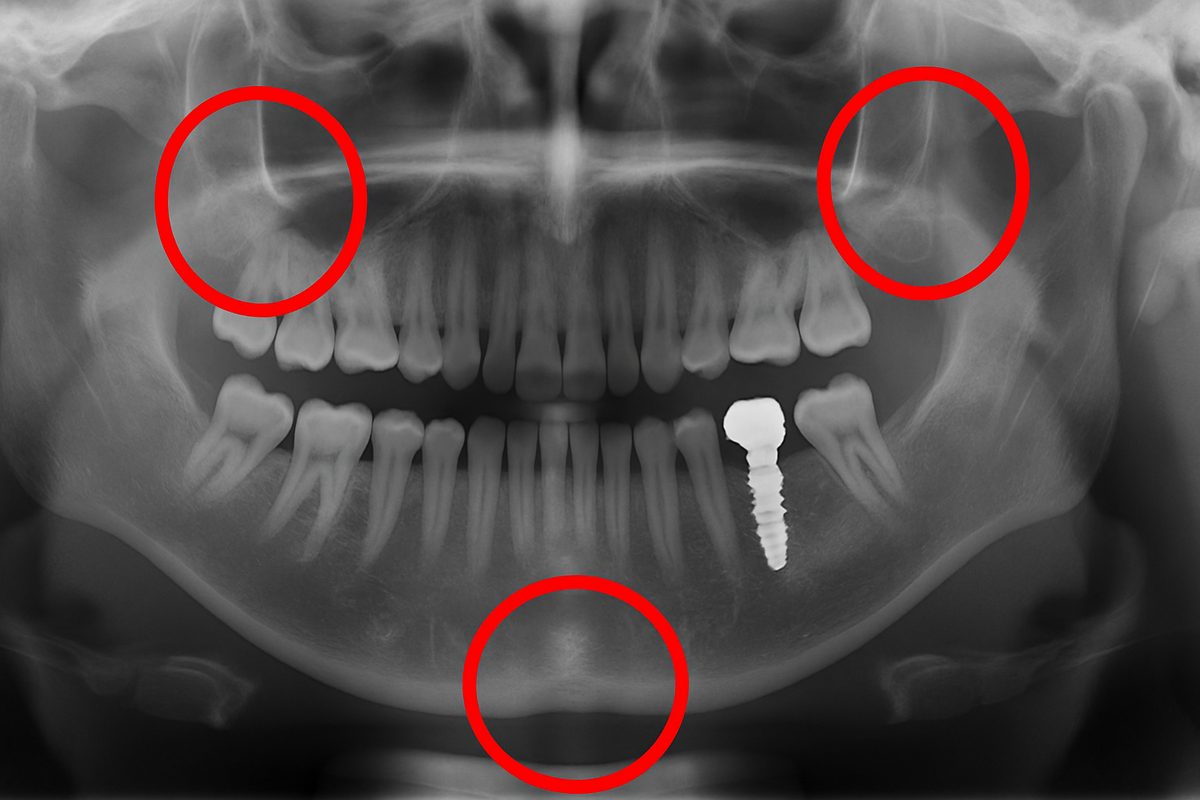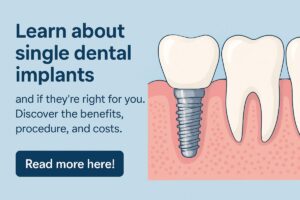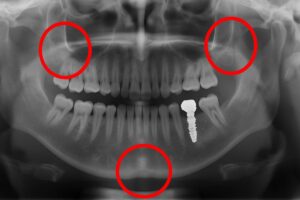Knowing common dental implants problems side effects in Eastern Montana helps you spot trouble early and protect your smile. This guide explains common issues, when to seek urgent care, how to prevent problems, and treatment options. Most implant issues are treatable if caught early—read on to learn clear, practical steps.
Common Dental Implant Problems & Side Effects
Peri-implantitis (infection around the implant)
Peri-implantitis is an infection that affects the gum and bone around an implant. Look for redness, swelling, bleeding when brushing, a bad taste or persistent bad breath, and possible pus. Left untreated, infection can erode bone and threaten the implant.
Loose or Failed Implant
A mobile implant or one that feels loose is a major warning sign. Early failure usually comes from poor osseointegration (the implant didn’t bond to bone). Late failure can come from overload, untreated infection, or bone loss. If you can move the crown or feel wobble, see your dentist quickly.
Nerve Damage and Numbness
Nerve injury can cause tingling, numbness, burning, or sharp pain in the lip, chin, tongue, or gums. This is most often related to implant placement too close to a nerve. Some symptoms may improve over weeks; persistent or worsening symptoms need prompt evaluation.
Sinus Problems (for upper jaw implants)
For upper implants, a sinus perforation can cause chronic sinus pressure, nasal discharge, or repeated sinus infections. If you notice sinus symptoms after implant surgery, mention them to your dentist or ENT.
Gum Recession and Bone Loss
Gum recession around an implant exposes metal or the edge of the crown and can affect appearance. Bone can shrink over time from infection, poor loading, or lack of maintenance. This can make the implant look longer and reduce support.
Mechanical Issues: Loose Screws, Fractured Crowns
Not all problems are biological. Screws can loosen, and crowns or abutments can fracture from wear or force. These issues are often fixed by tightening or replacing parts rather than surgery.
Allergic or Material Reactions
Metal sensitivity or reactions to implant materials are rare. Signs can include unusual inflammation or persistent discomfort without infection. If you have known metal allergies, tell your dentist before treatment.
When To Seek Urgent Care
- Severe, increasing pain that doesn’t respond to pain meds
- Fever or chills with implant-area pain
- Spreading swelling of face, neck, or throat
- Persistent heavy bleeding after surgery
- Sudden numbness, breathing trouble, or difficulty swallowing
Risk Factors That Raise the Chance of Dental Implant Problems
Certain conditions make problems more likely: smoking, uncontrolled diabetes, poor oral hygiene, bruxism (teeth grinding), inadequate bone, and prior radiation therapy to the head or neck. Tell your dentist about medical history and habits so risks can be managed.
Prevention & Aftercare To Minimize Dental Implants Problems Side Effects
- Keep strict oral hygiene: brush gently around implants, floss or use interdental brushes daily.
- Attend regular check-ups and professional cleanings.
- Follow all post-op instructions after surgery (meds, diet, activity limits).
- Stop smoking before and after implant surgery to improve healing.
- Use a night guard if you grind your teeth to protect implants from overload.
Treatment Options for Common Side Effects
Non-surgical care
Early infections or inflammation can often be managed with deep cleaning around the implant, improved home care, antibiotics, antiseptic rinses, or adjustments to your bite (occlusal adjustments).
Surgical care
When non-surgical care isn’t enough, surgical options include flap surgery to clean infected tissue, bone grafting to restore lost support, or removal and later replacement of the implant. Complex cases may be referred to a specialist.
How a Trained Implant Dentist Helps
A skilled implant dentist reduces the chance of problems through careful planning, precise placement, and follow-up care. Dr. Barrie Matthews, DMD, University of Pennsylvania-trained and active in advanced programs like Full Arch Masters and Implant Pathway, combines implant and anesthesia training with ongoing education. That experience helps him diagnose issues early, offer appropriate treatments, and refer to specialists when needed.
Questions to Ask Your Implant Dentist
- What is the risk of complications for my specific case?
- How will you prevent and detect infection or bone loss?
- What will you do if I have nerve symptoms or sinus issues?
- Do you offer sedation, and is emergency follow-up available?
- How will you monitor and maintain my implants long-term?
Closing / Next Steps
If you’re worried about dental implants problems side effects in Eastern Montana, schedule an evaluation right away. Early diagnosis improves outcomes, and a trained implant dentist can assess the issue and plan safe, effective next steps. Big Sky Smile Center can help you understand options and get timely care for better long-term results.




